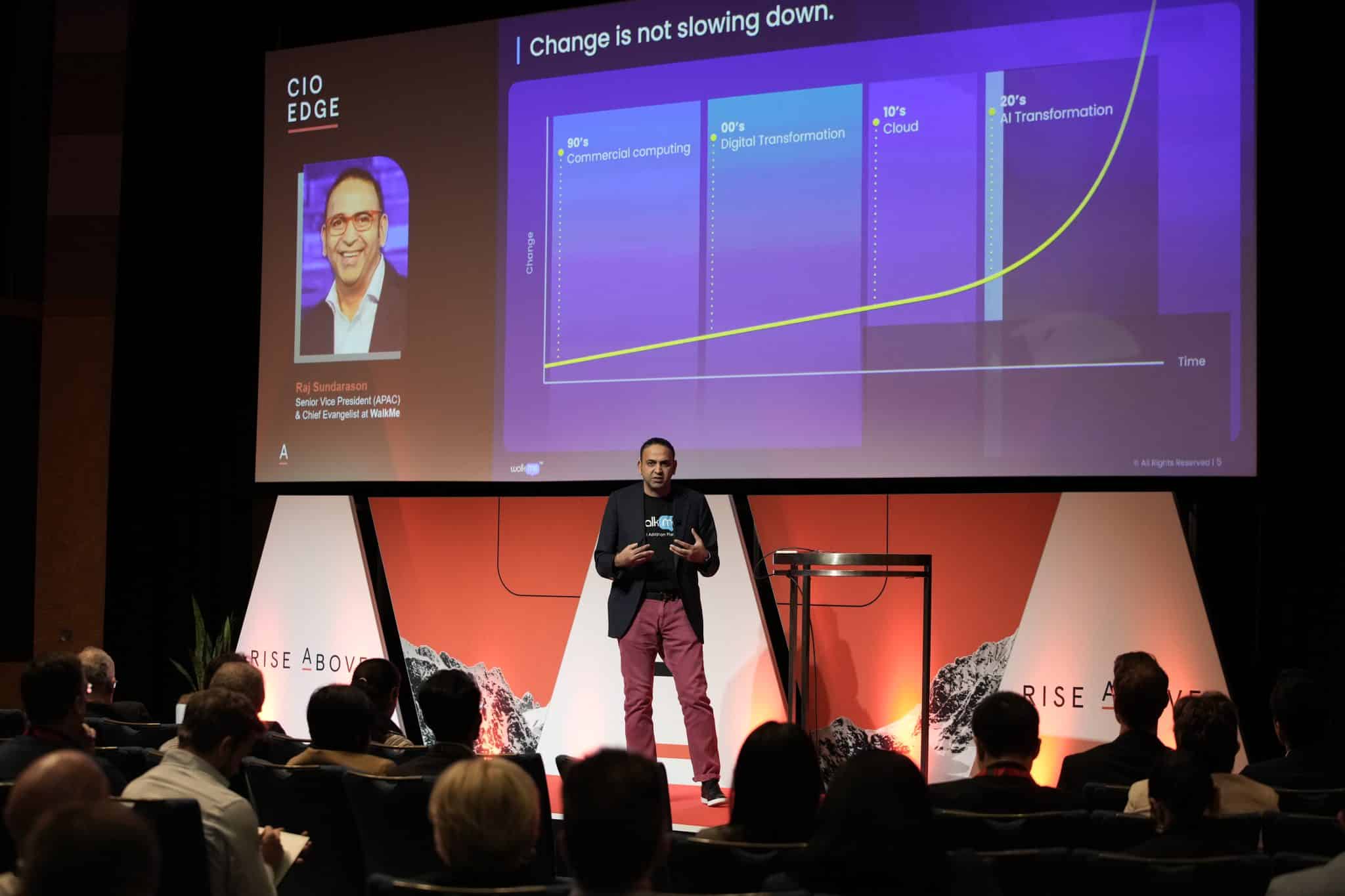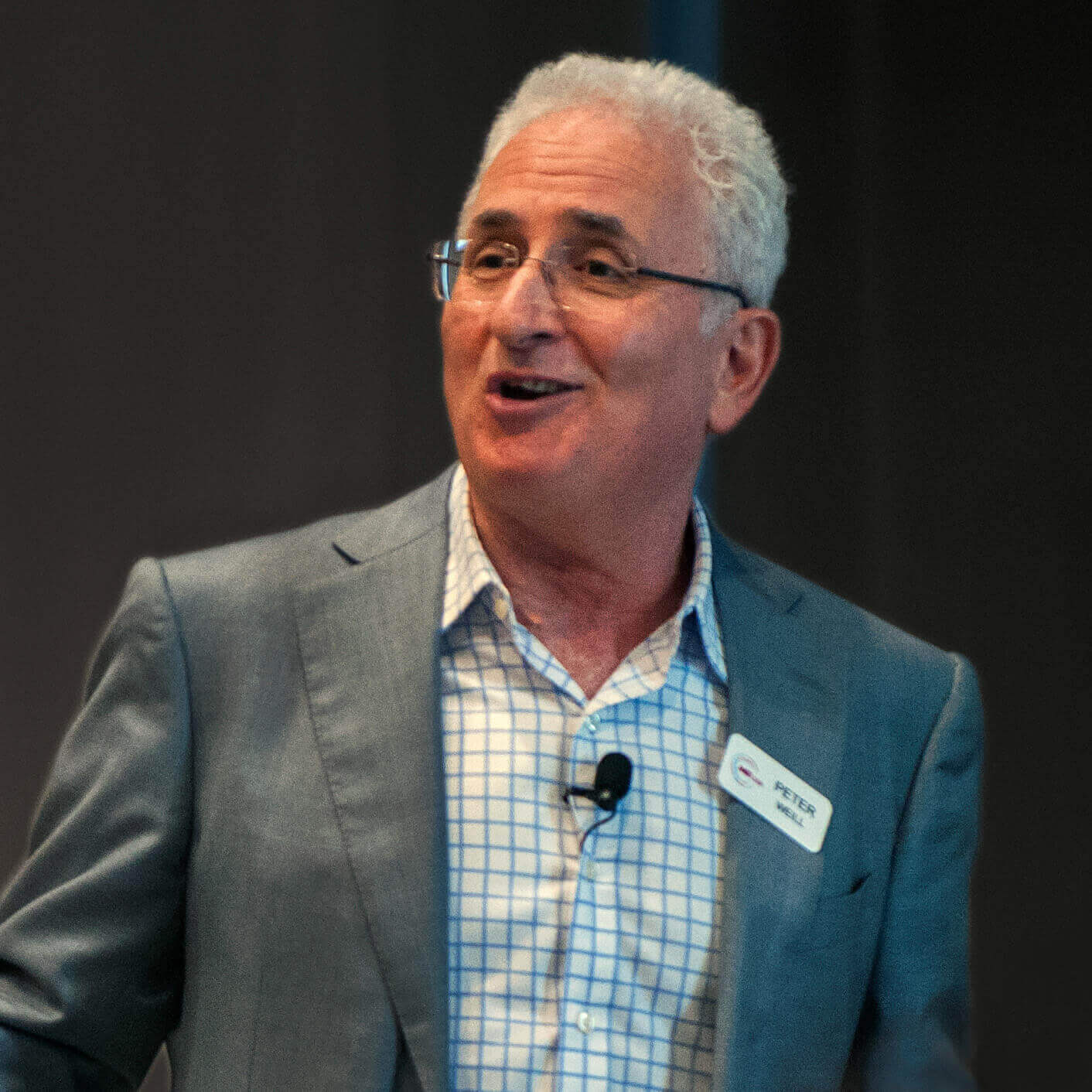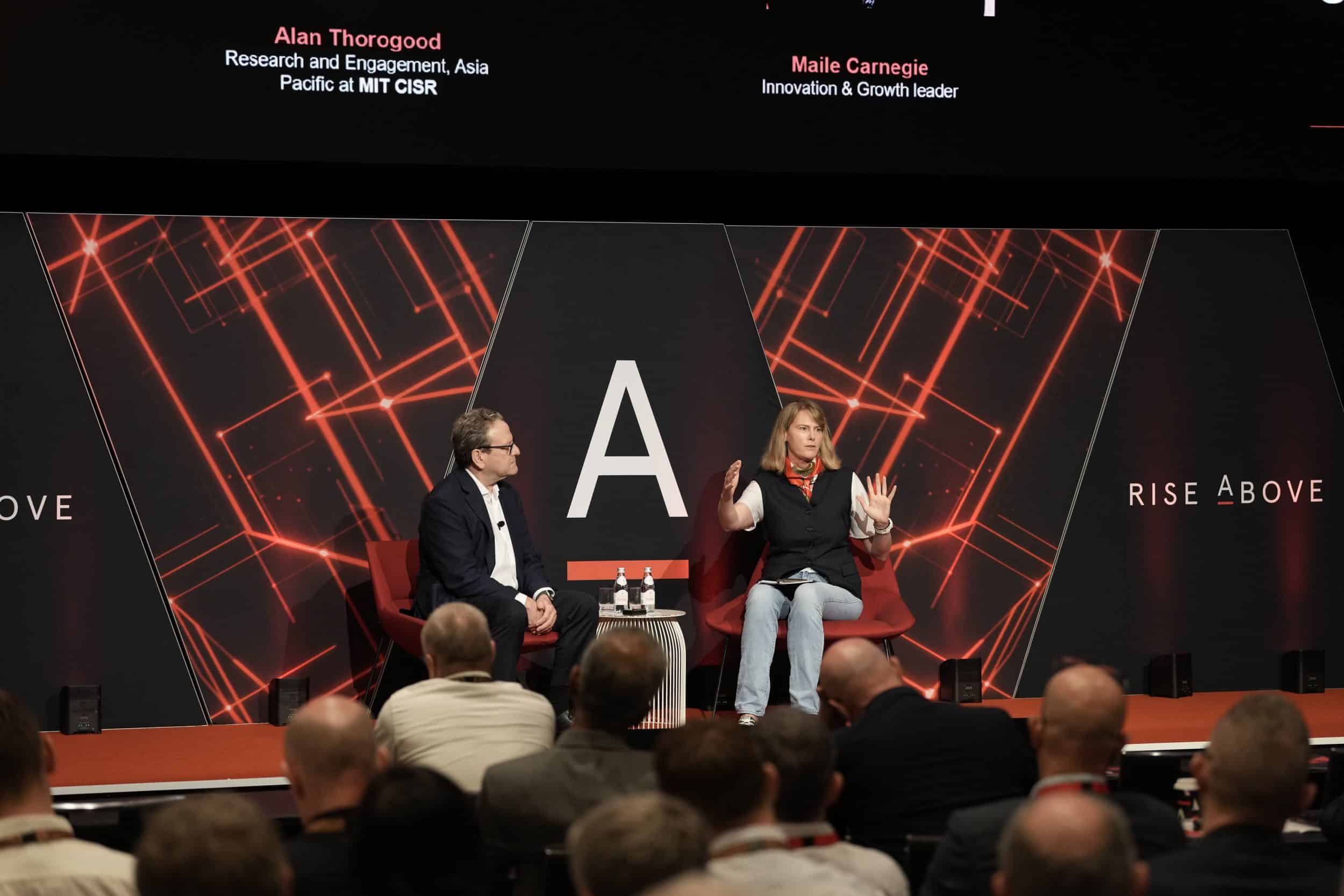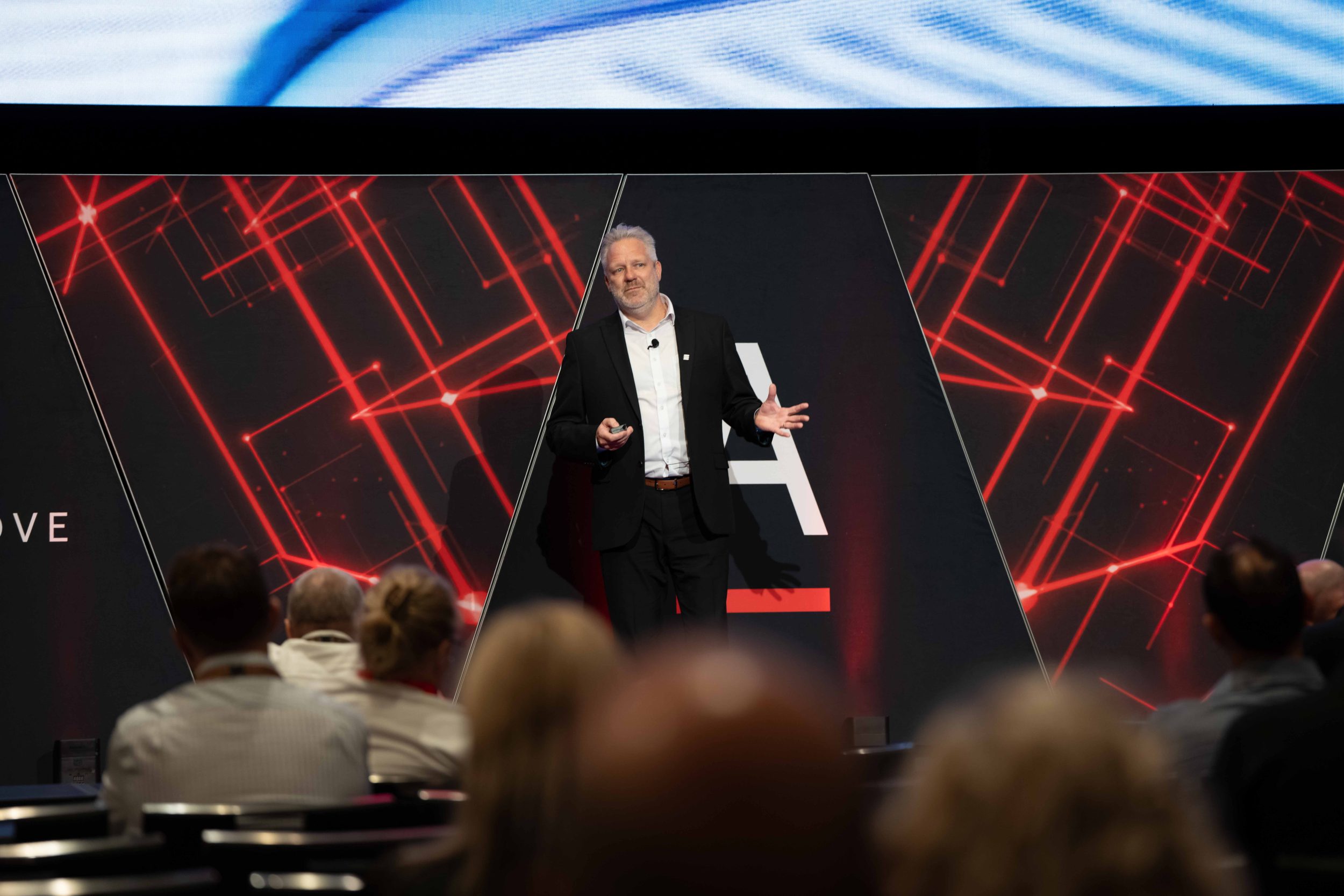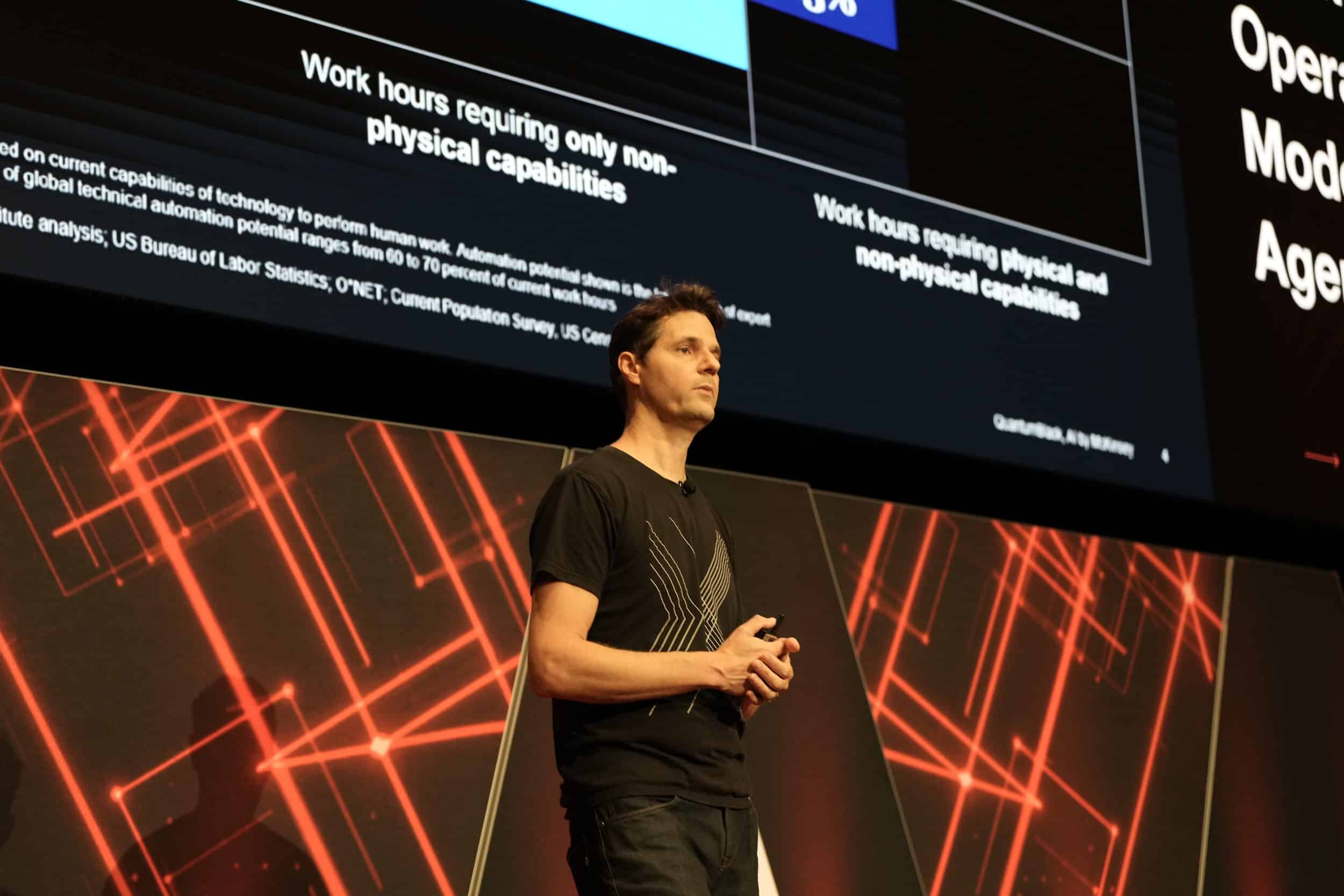Australia’s strategic path to digital transformation, operational excellence, and AI readiness: Insights from CIO Edge
CIO Edge 2024, held in Sydney, gathered Australia's leading technology leaders to address the formidable challenges of digital transformation, operational excellence, and AI readiness.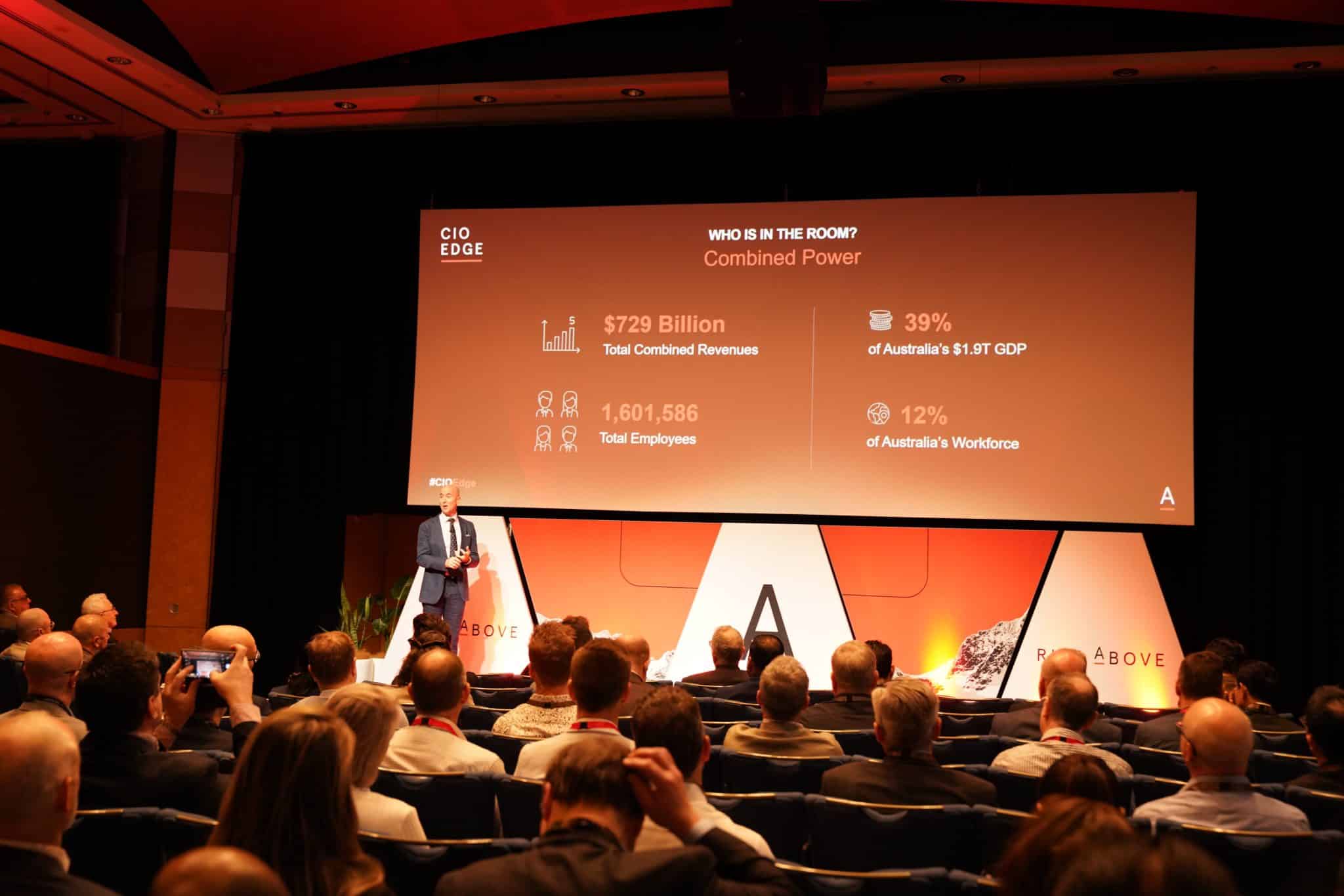
CIO Edge, held in Sydney, gathered Australia’s leading technology leaders to address the formidable challenges of digital transformation.
The event centred on achieving operational excellence in the digital era.
In his opening keynote, Jim Berry, CEO & Founder at ADAPT noted that technology differentiates how and when companies can achieve their organisational objectives.

With over 180 CIOs and heads of IT representing 39% of Australia’s GDP and 12% of its workforce, the stakes were high.
Jim highlighted the complex and multifaceted journey toward operational excellence, involving modernisation, data strategy, AI integration, and cyber security.
He emphasised that organisations are at various stages in this journey, dealing with complexities while striving to simplify processes, enhance visibility, and manage costs.
The event put the spotlight on the critical role of strategic leadership in effectively navigating these challenges.
How 180+ CIOs are shaping operational excellence
Modernising and simplifying legacy systems for efficiency and business growth
Tackling legacy systems was a key challenge highlighted throughout the event.
Jim emphasised that simplifying technology is crucial to enable cost efficiency, security resilience, and pave the way for modernising with new capabilities, driving operational excellence.
Gabby Fredkin, ADAPT’s Head of Analytics & Insights, revealed the latest insights drawn from our 350 detailed surveys of the region’s top CIOs in 2024.
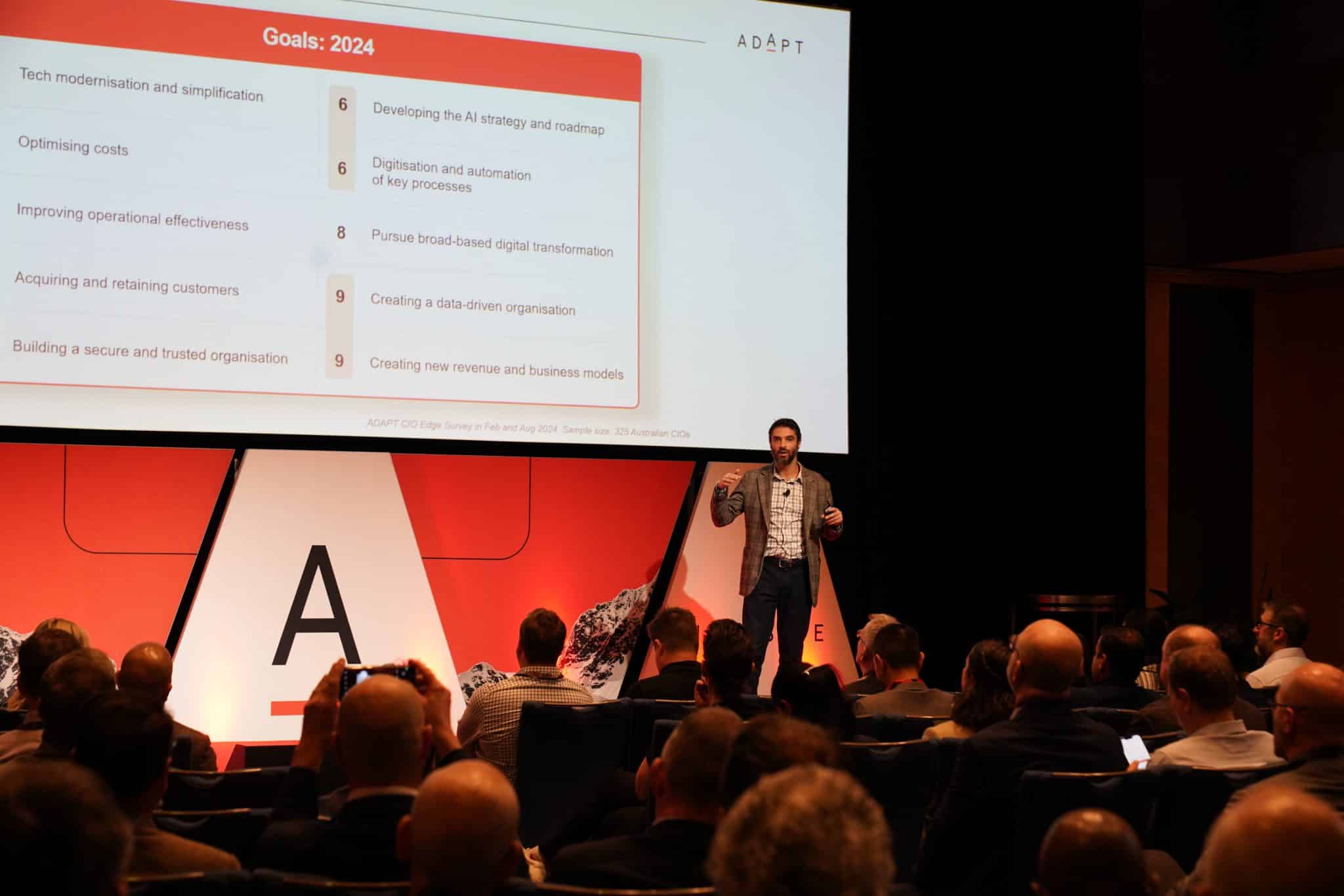
Gabby revealed that organisations classified as ‘highly modernised’ enjoy a 60% higher rate of API connectivity and have successfully consolidated applications by 45% compared to their less modernised peers.
He advised that CIOs focus on modernising infrastructure and improving API connectivity to drive operational efficiency and align IT initiatives with business goals.
Karen O’Driscoll, CIO at Cochlear, shared her organisation’s successful transformation journey, highlighting the role of strategic partnerships and technology integration.
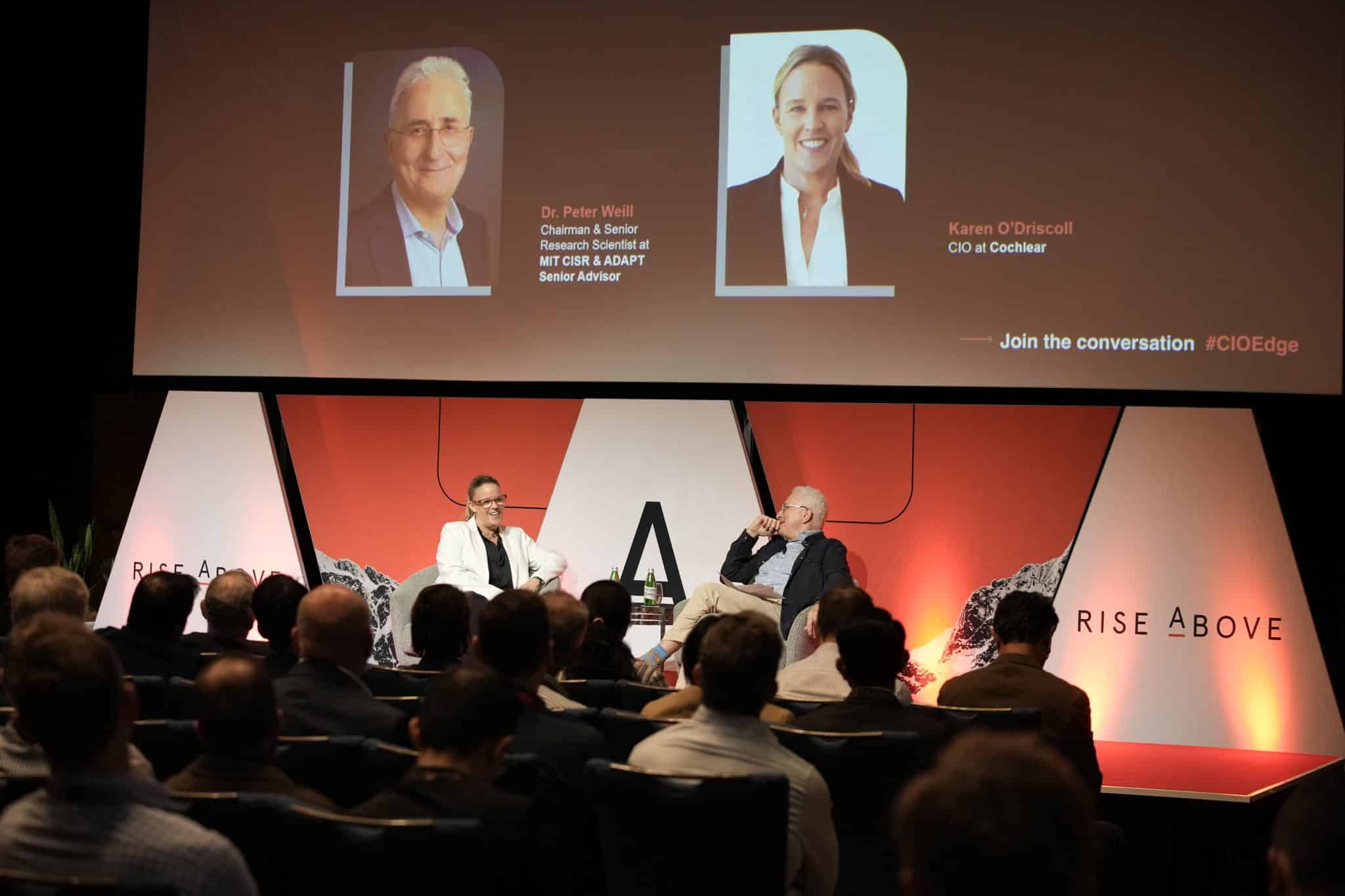
Karen described how Cochlear’s strategic transformation led to profound growth and profitability.
She emphasised that transformation goes beyond merely adopting new technologies; it involves reimagining how value is delivered to customers through innovation and collaboration.
Prioritising robust data governance and real-time data utilisation for enhanced decision-making and compliance
A robust data strategy is essential for unlocking the full potential of digital transformation and AI initiatives.
Despite the growing recognition of data’s strategic importance, many organisations still struggle with data silos, quality issues, and governance challenges.
During his keynote presentation, Dr. Peter Weill focused on the importance of real-time business, emphasising that trusted, timely data serves as the lifeblood of modern enterprises.
His research showed that companies excelling in real-time data utilisation outperform their peers by 25% in customer satisfaction and 30% in operational efficiency.
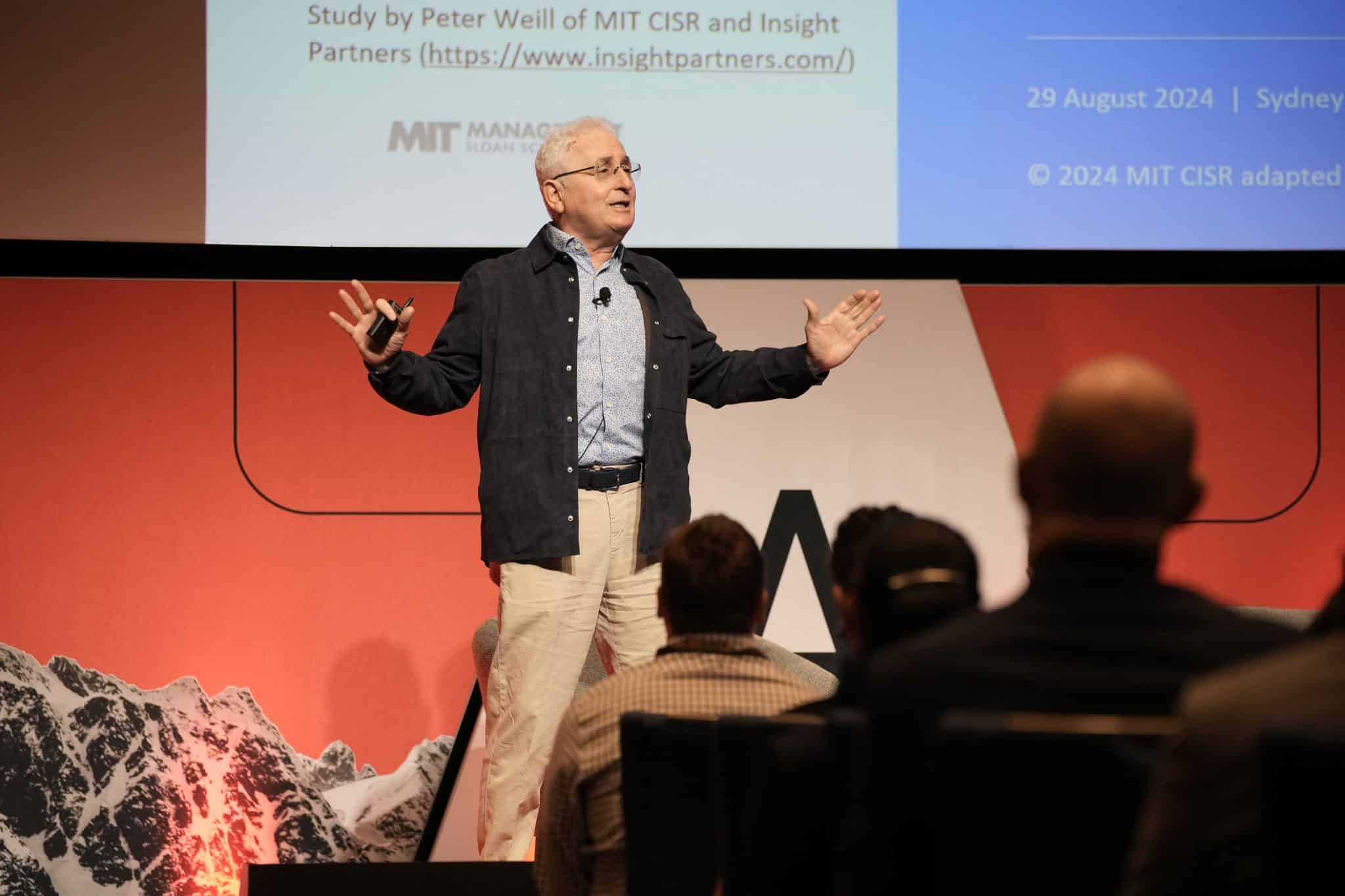
He advised CIOs to prioritise real-time data integration and ensure data quality to drive business agility and customer-centric operations.
For his part, Gabby pointed out the importance of a comprehensive data governance framework, revealing that only 35% of Australian enterprises have such a framework in place.
The need for improvement was clear, with an emphasis on the challenges of ensuring data privacy and compliance amid increasing regulatory scrutiny.
Embedding a security-first mindset and integrating comprehensive risk management practices
As organisations expand their digital footprints, the threats and vulnerabilities they face increase.
With 40% increase in cyber attacks over the past year, cyber security and risk management were central themes, with experts stressing the rising sophistication of cyber threats and the necessity for resilient security strategies.
Angela Logothetis, Executive Group Owner of Network and Business Application Services at Telstra, highlighted that security is far more than a technical issue; it is a business imperative that demands continuous vigilance and a holistic approach, integrating people, processes, and technology.

Angela showcased Telstra’s efforts in leveraging innovative technologies to enhance customer and employee experiences, leading to improved operational efficiency and sustainability.
Strategically implementing AI with clear goals and quality data
Artificial Intelligence and other emerging technologies were spotlighted as transformative forces poised to reshape business models and competitive landscapes.
However, speakers cautioned that realising AI’s full potential requires thoughtful implementation and a clear understanding of its capabilities and limitations.
Michael Kollo, CEO at Evolved, AI delivered a critical analysis of common pitfalls in AI adoption, highlighting that many organisations grapple with unrealistic expectations and misaligned objectives.
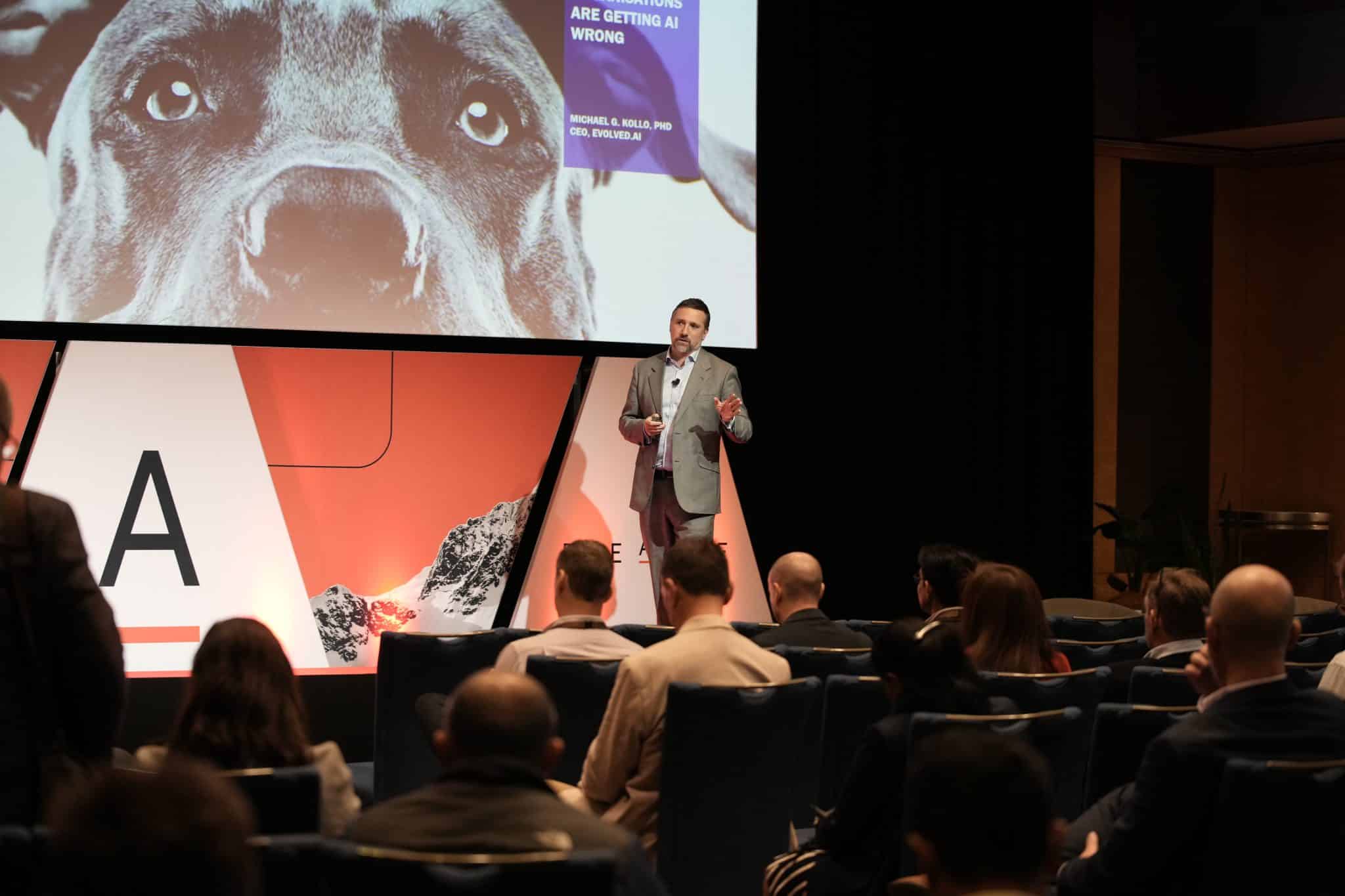
Michael warned that AI holds immense potential, but without a strategic approach and proper groundwork, efforts can quickly become misguided and yield little value.
He advocated for a disciplined, data-centric approach to AI initiatives, emphasising the importance of quality data, cross-functional collaboration, and clear alignment with business goals.
Raj Sundarason, Senior Vice President (APAC) & Chief Evangelist and Adam Dinneen, Director, Sales Engineering APAC at WalkMe explored the critical role of digital adoption in enabling AI-driven transformation.
Raj and Adam stressed the need for seamless integration of new technologies into existing processes, advising CIOs to prioritise digital adoption strategies that enhance employee engagement and ensure smooth transitions during AI implementation.
Developing leadership and strategic capabilities
David Gee, a veteran CIO and CISO, recently the former Global Head Technology, Cyber & Data Risk at Macquarie Group, shared valuable insights on becoming a world-class CIO.
He emphasised the importance of self-transformation as a foundation for leading organisational change.
David advised CIOs to step outside their comfort zones, address personal weaknesses, and continuously strive for growth in leadership capabilities.
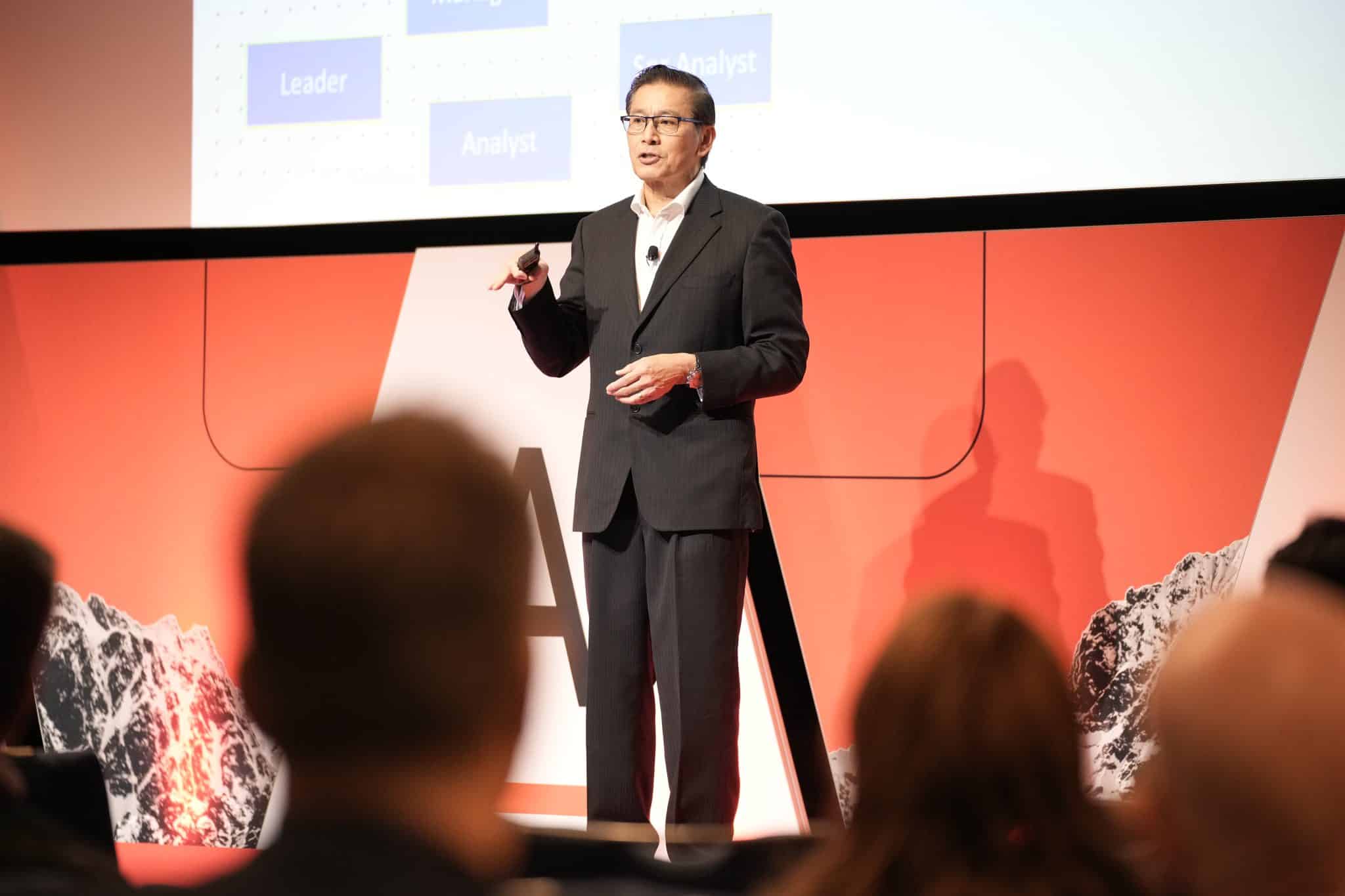
He discussed the critical first 90 days in a new CIO role, suggesting that leaders should develop a clear plan focused on people, processes, and technology while being transparent about their objectives and open to feedback.
David also stressed the importance of understanding the type of CIO one is—whether operational, strategic, or business-oriented—and how to stretch beyond natural inclinations to meet business demands.
Aligning IT strategies with measurable business outcomes
In a CIO panel, John Hunt, CIO & Director of Group Enablement at Woolworths and Memo Hayek, CIO & CTO, Executive Leader. Previously Nine Entertainment & CBA, provided practical insights into securing executive support for IT initiatives and achieving operational excellence.
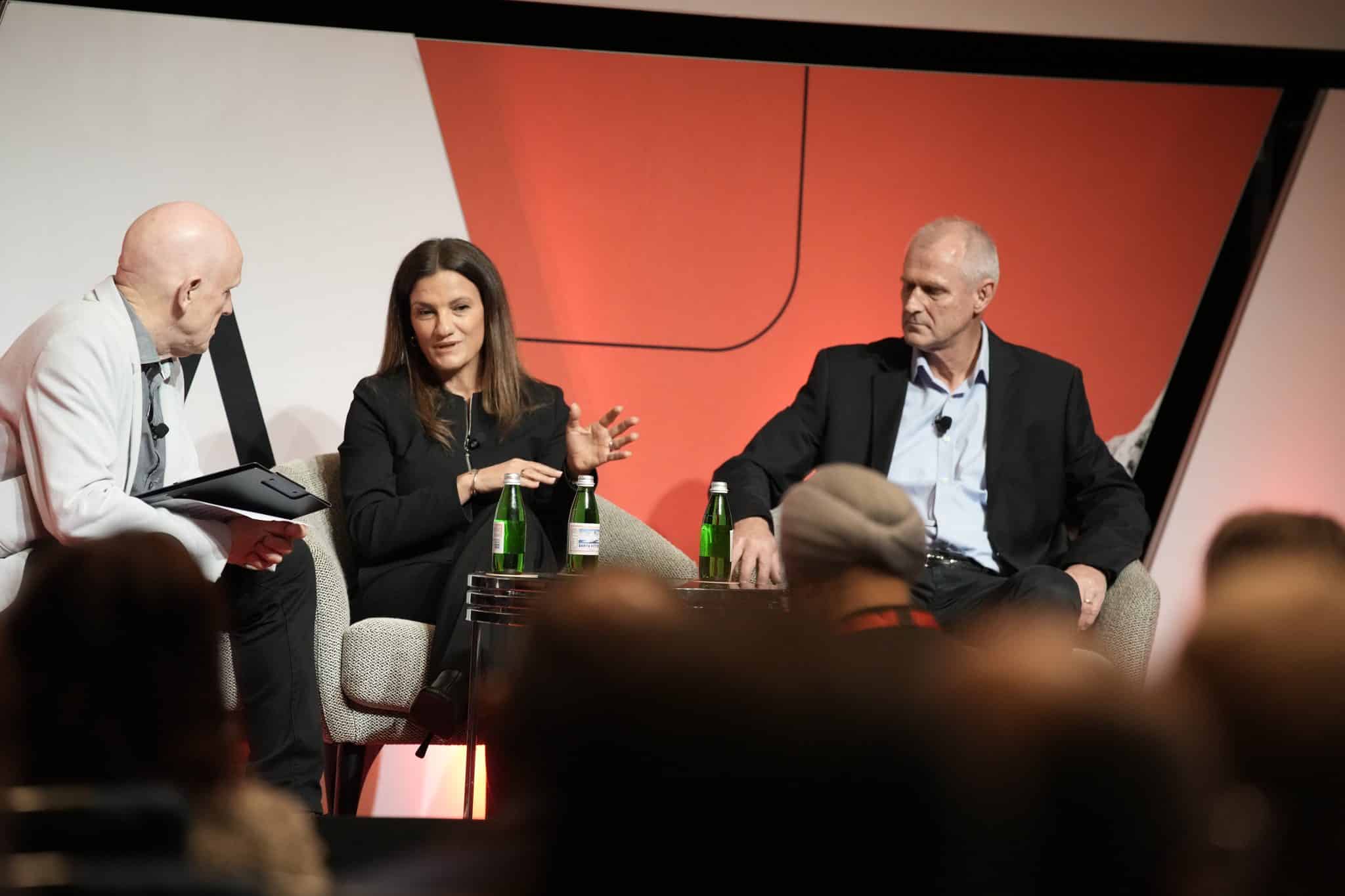
The panel discussed the challenges of securing executive support, with a focus on the need for CIOs to clearly communicate the value of IT initiatives.
Their advice included fostering strong relationships with executive leadership and ensuring that IT strategies are directly tied to measurable business outcomes.
Meanwhile, Sakshee Kohli, Head of Engineering & Site Infrastructure at Coles and Andrew Hinde, Regional Sales Manager at Delphix by Perforce, discussed how their innovative approach to test data engineering has accelerated feature releases and enhanced speed to value.
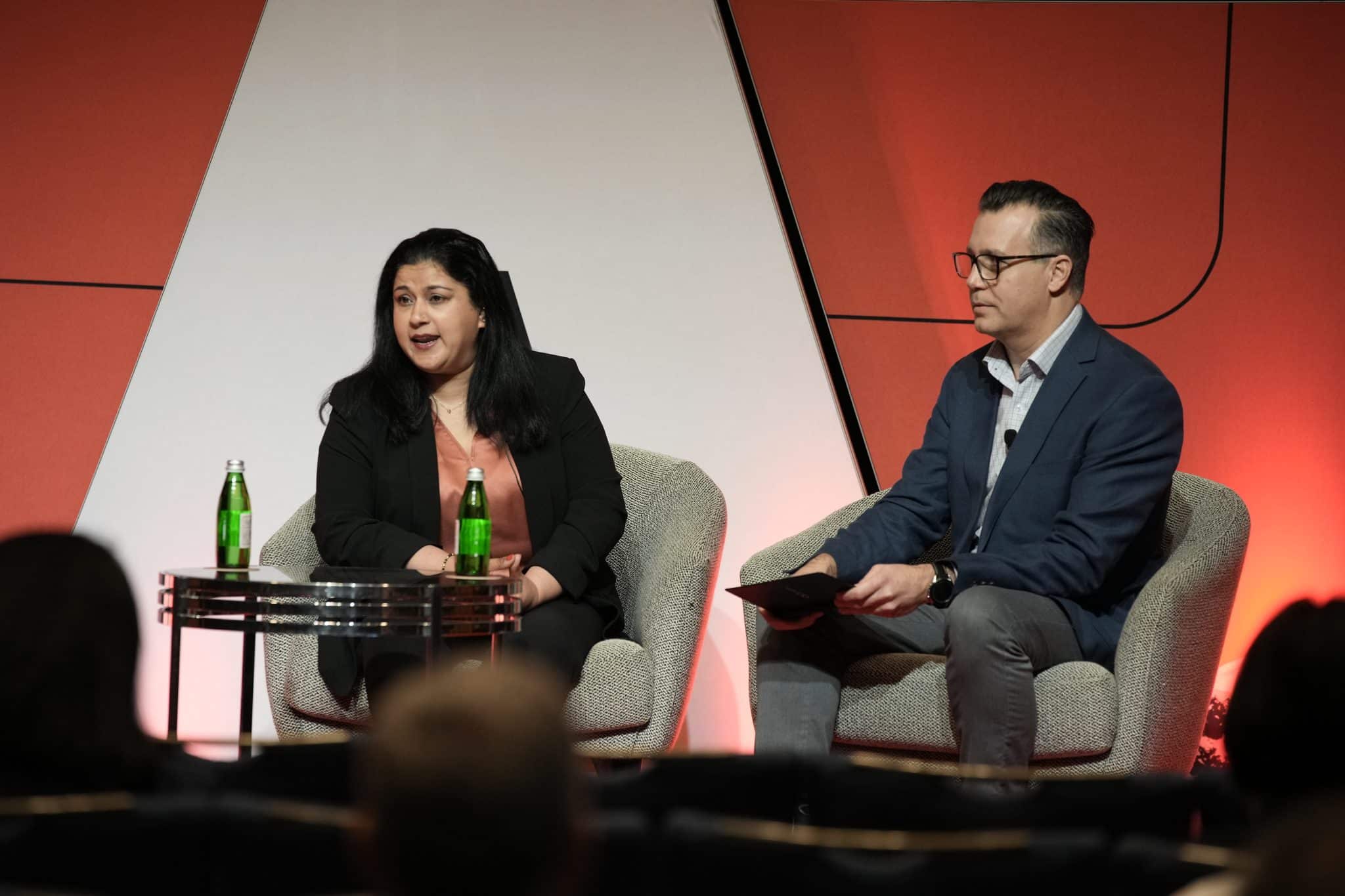
Sakshee and Andrew highlighted how Coles reduced feature release times from a month to two weeks by revolutionising their test data engineering practices.
They recommended implementing robust test data management practices and investing in automation tools to accelerate product development cycles.
Executive Actions
- Adopt a holistic approach to digital transformation: Ensure that technology upgrades are accompanied by cultural and process changes, aligning all initiatives with clear business objectives to drive meaningful outcomes.
- Develop and enforce robust data governance frameworks: Prioritise the establishment of comprehensive data strategies that facilitate real-time insights while ensuring compliance, security, and data integrity across the organisation.
- Embed security into every aspect of operations: Cultivate a security-first mindset by integrating advanced cyber security measures, continuous monitoring, and employee education into all facets of digital transformation efforts.
- Strategically implement AI and emerging technologies: Approach AI adoption with clear goals, quality data, and cross-functional collaboration, leveraging external partnerships and upskilling programs to overcome technical and resource challenges.
- Foster strategic partnerships for innovation: Collaborate closely with technology partners and stakeholders to co-create solutions that enhance customer value and operational efficiency, leveraging external expertise and resources effectively.
Conclusion
CIO Edge 2024 highlighted the essential role of strategic leadership in steering through the complexities of digital transformation.
Jim opened the event by acknowledging that while we are amidst an unprecedented tech-driven revolution, there are critical challenges in funding and executing the necessary initiatives.
The event’s insights and discussions offered a detailed roadmap for Australian technology leaders, guiding them on how to leverage modern technologies while effectively managing the associated risks.
CIOs must take an active stance in securing the resources and support needed to propel their organisations forward.























